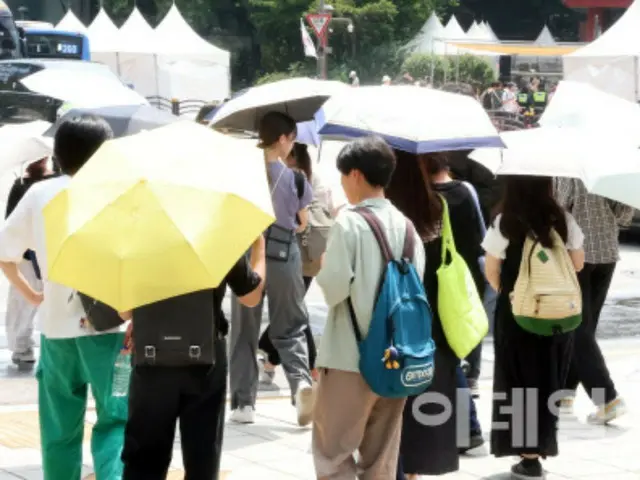As a result, electricity demand reached an all-time high, and frequent torrential rains caused prices of vegetables such as Chinese cabbage and lettuce to skyrocket.
Is this summer's extraordinary weather just a teaser for the climate crisis that is looming in Korea?
Some experts warn that in the worst case scenario, most of South Korea, except for Gangwon-do, will become subtropical in the second half of the 21st century, and the gross domestic product (GDP) of South Korea will be 100 million by 2100.
In a report titled "Impact of Climate Change Risks on the Real Economy" released on the 4th, the Bank of Korea stated, "The impact of transition risks due to carbon pricing policies
The impact of physical risks due to climate damage will increase around 2050 and then gradually decrease. However, if policy responses are not implemented or are delayed, the impact of physical risks due to climate damage will increase as we approach 2100.
The report compared four cases in line with the target for limiting temperature rise: responding to a 1.5 degree rise, responding to a 2 degree rise, responding if delayed, and no response.
In the case of a 1.5 degree increase, the world must respond by 2050 to limit the increase in global average temperature to 1.5 degrees compared to pre-industrial levels (1850 to 1900).
The scenario is one in which we achieve carbon neutrality by 2030. The response to a 2°C increase is a more moderate response. The delayed response is one in which we have to implement climate-smart policies until 2030.
The no action scenario is an extreme scenario in which the whole world does not implement any special climate policies.
Kim Jae-yoon, head of the Bank of Korea's Sustainable Growth Research Team, said climate change is driven by rising carbon prices and the development of environmentally friendly technologies.
The real economic situation in Korea is affected by "transition risks" such as the expansion of the economy, "chronic risks" such as rising temperatures and increased precipitation damage both at home and abroad, and "acute risks" that appear due to the increase in the frequency and scale of natural disasters.
"Transition risks and chronic risks will have a long-term negative impact on Korea's GDP, but we need to be proactive in responding to climate change and implement relevant policies," Kim said.
"We found that the sooner the law is enacted, the smaller the negative impacts will be," he said. It should also be taken into consideration that delaying action could lead to an increase in the frequency of extreme weather events.
Under the no-climate scenario, in the case of South Korea, extreme precipitation (maximum precipitation that occurs about once in 100 years) will increase by up to 80% from the middle of the 21st century onwards. The number of days of extreme heat will increase by 70.
The damage estimates for typhoon damage across South Korea are estimated to be 8.2 trillion won (US$8.7 billion) in 2050 and 9.7 trillion won (US$9.7 billion) in 2100 under a no-response scenario.
In the case of a 1.5 degree rise, the impact of rising carbon prices and other factors will be higher than in the base scenario, which has no impact from climate change, by 2050.
GDP will decline by 13.1% around 2020, but this decline will shrink to 10.2% (annual average of 0.14%) around 2100 due to the development of environmentally friendly technologies and mitigation of climate damage.
Conversely, in the scenario without any response, GDP will decrease by only 1.8% compared to the base scenario around 2050, but climate damage will increase and reach 21% (annual average 0.
It is estimated that the number of people in the U.S. will decrease by 3%.
2024/11/05 07:07 KST
Copyrights(C) Edaily wowkorea.jp 107

